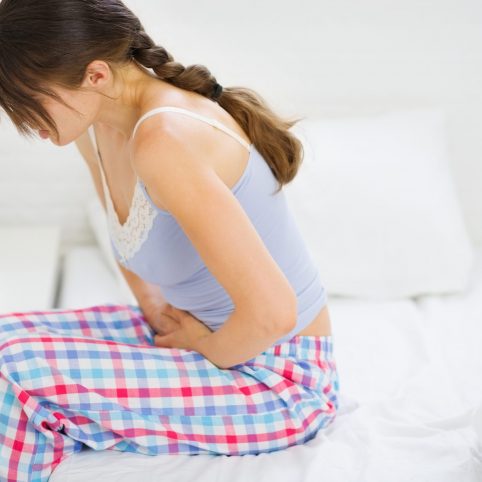What is a period?
As we grow older our bodies go through puberty, this is when changes occur in the body and our shape begins to change. For women, a part of puberty is menstruation otherwise known as periods. A period is when your body releases tissue it no longer needs. The tissue that is released during a period is the lining of the uterus (womb).
When will I get my period?
Every person is unique so the age at which someone starts their period will differ from person to person. Most young women experience their first period between the ages of 12 and 14 years old. However, it is not uncommon to get your period before the age of 12 or older than 14. However, if you have not started your period by the time you are 16, speak to your mother and/or doctor to make sure everything is ok.
How long will my period last?
Usually, a period will last between 3 to 7 days, but for girls with bleeding disorders, they can last longer. It can take a while for your periods to regulate and for the first year you may be “caught off guard” on occasion, but after a year your periods will begin to come in a regular cycle, which means you should be able to calculate when you will start your period and how long it will last. It is important to speak to someone; a friend, sister, cousin, mother, teacher or doctor if you have any questions or are worried about anything.
First Period
Your first period is a milestone, it marks the start of the transition from childhood into adulthood. It is important to know what to expect when you have your first period. Unfortunately, many girls are caught off guard for their first period which can be embarrassing. Talking to your mother or sisters about when they started their period will give you an indication of when you may start yours. Menstruating can lead to several side-effects. Many girls get painful cramps and/or other symptoms such as headaches, moodiness, acne etc. but these can be managed. If you are experiencing pain during your period you should speak to your doctor.
It is estimated that a girl loses 30 to 45 millilitres (2-3 tablespoons) of blood during her period, although the perception is and can feel that you lose more. Women with bleeding disorders usually lose more as they can bleed heavier and/or for longer. Heavy periods, also known as menorrhagia (men–or–ash–e–a), are diagnosed when a blood loss of 80 millilitres (5 ½ tablespoons) or more occurs. It can be difficult to measure how much blood loss occurs during a period, but here are some tips to help you judge the heaviness of your flow:
* Bleeding for longer than 7 days
* If you change your tampon or sanitary towel every hour or less
* Flooding or leaking (soiling clothes)
* Passing clots the size of a 50cent coin or larger
There can be a lot of information to understand and process about periods, but it is important to know what is normal and what is not.
Top Tips
It can take a year for your cycle to become regular so it is important to be prepared. Here are a few tips to ensure you are never caught off guard:
* Keep a small makeup bag in your school bag or handbag some tampons / sanitary towels.
* Keep a record of your periods to work out your cycle.
* Avoid wearing clothes that are tight – some people can feel bloated when they have their periods and having tight clothes on will make the situation worse and also make you feel self-conscious.
* Use a hot water bottle – a hot water bottle is the next best thing to a hug, so whether you have cramps or are just feeling a little down, fill up your hot water bottle and hold it tight.
* Do some exercise – although you may not feel like it, exercise will help relieve tension in the muscles and ease the pain caused by cramps.
* Have some “me” time – have a warm bath, give yourself a manicure, throw on your favourite tracksuit, have a pyjama day or watch a movie. You may not have a “happy period”, but you can try and what better way to do it than by spoiling yourself – you deserve it!
* Avoid stressful situations – your periods should not impact on your everyday life, but it can be an emotional time. Don’t put yourself under pressure to take part in activities or situations you feel uncomfortable in.
No two people will experience the same period so it is important to remember that nothing you experience is wrong. If you are worried about any symptoms you have, speak to someone about your concerns.
1 in 5 women experience heavy menstrual bleeding, and 1 in 5 women with heavy periods who are checked for a bleeding disorder will be diagnosed with one. Despite this, only 1 in 10,000 people in Ireland are currently diagnosed with a bleeding disorder.
For further information, please check out knowyourflow.ie, a campaign funded by the Health Research Board and in collaboration with RCSI and the I.H.S.
It aims to educate women to recognize if their periods are heavier than normal and when heavy periods could be a sign of a bleeding disorder. Check out the short video below:
